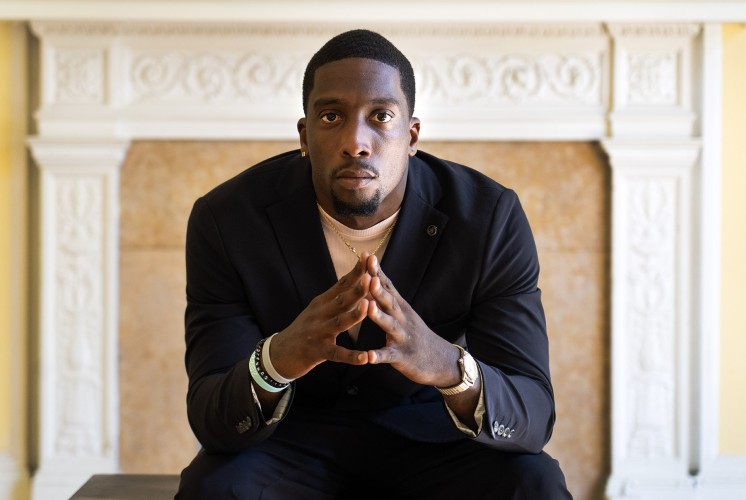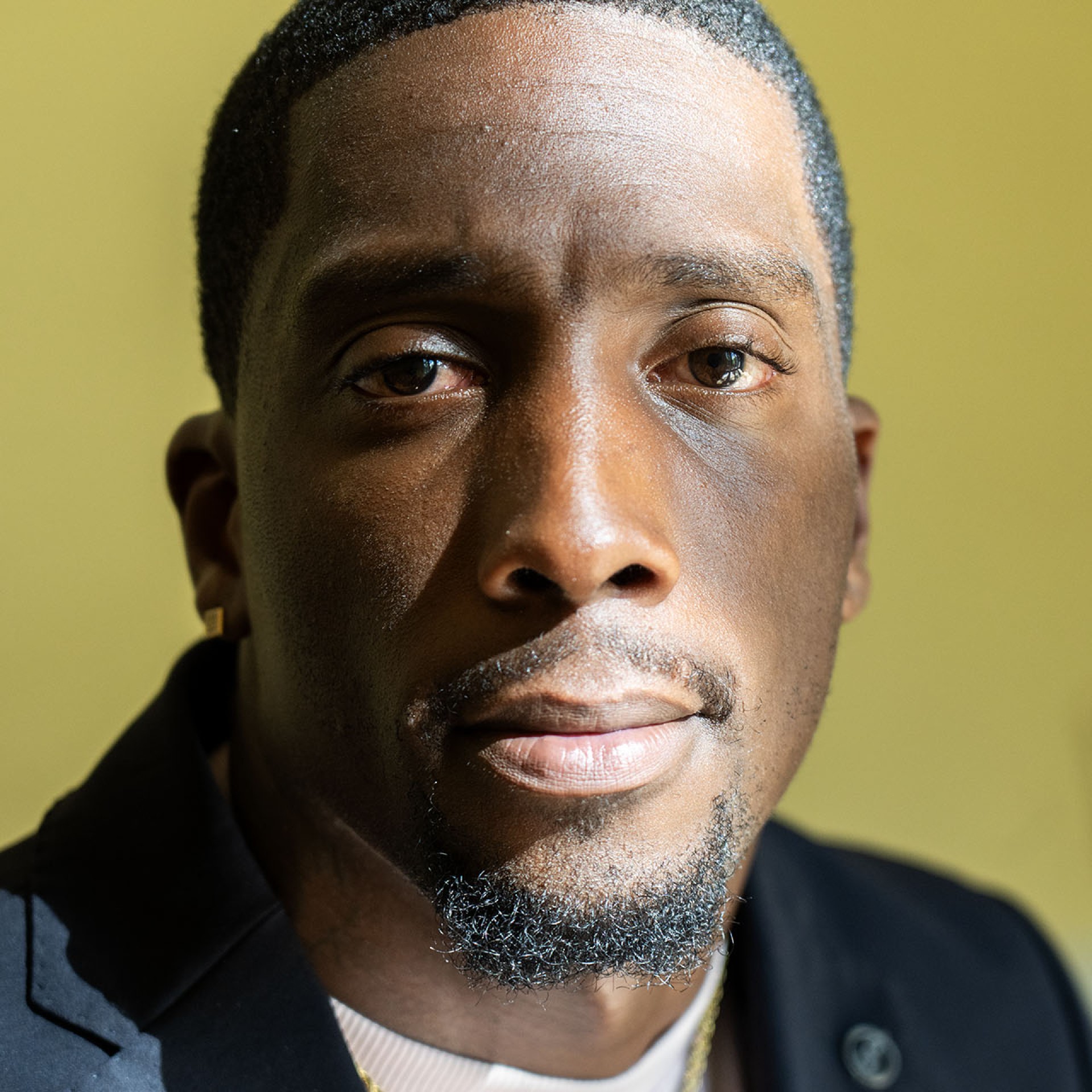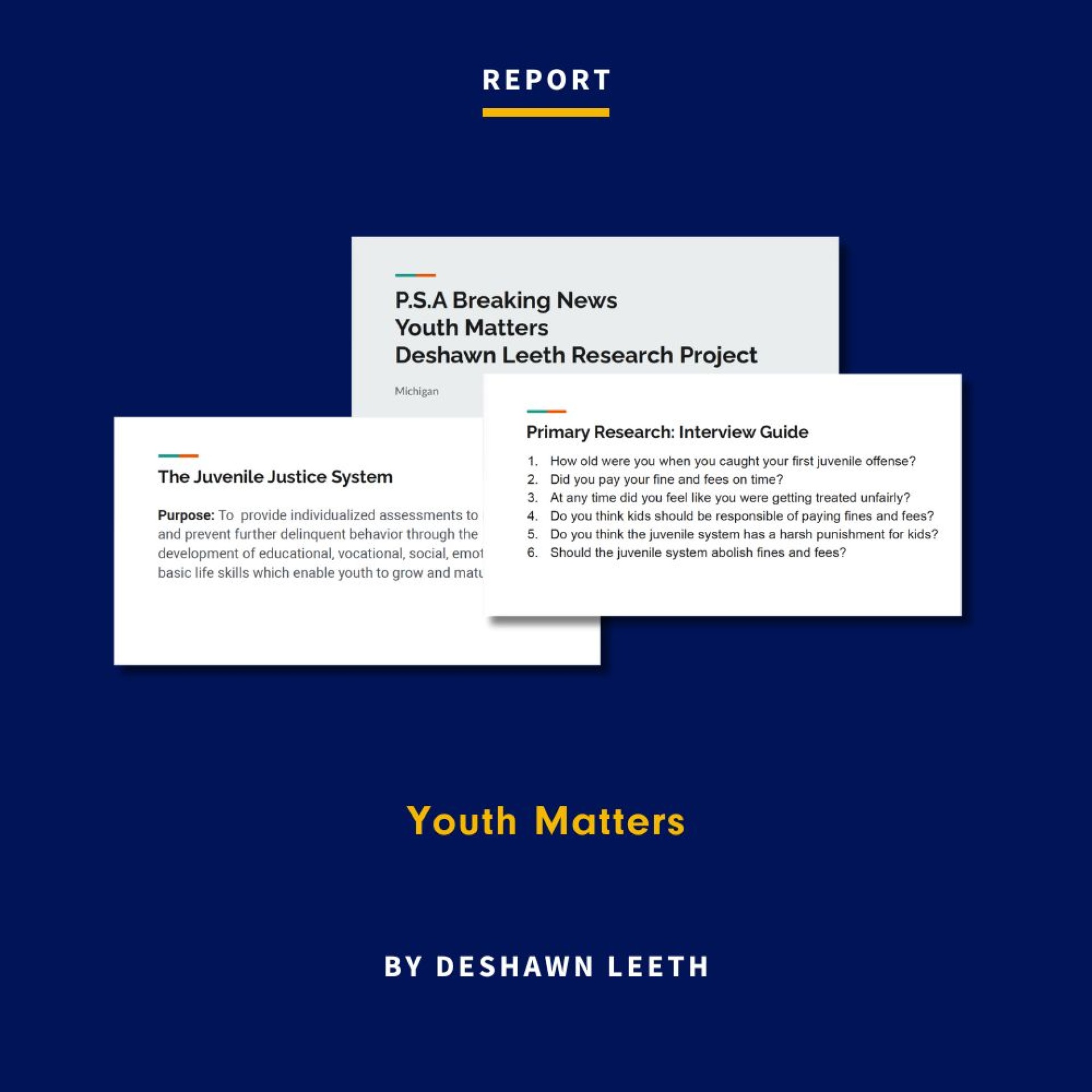This interview has been edited for length and clarity.
DFJ: Tell us about yourself?
DESHAWN: I tell people all the time, my life is a rollercoaster ride. I grew up in Detroit. I'm the youngest out of five children. My childhood was traumatic. My mom was a heroin addict. I grew up thinking that my dad died in a car accident. That was trauma for a young boy growing up without his father, especially for a black kid to not have a father figure in the household. I had to be a man at the end of the day at a young age because I was living with my mom. She was doing heroin, if she got sick, that can kill her. She's about to overdose, and I have to go into the neighborhood and find drugs and be like, “Hey, my mama's sick because she don't got her fix.” That's the trauma. So that trauma created a sense of urgency. I have to survive because I don't have the basic things to survive as a kid. I'm doing grownup things at 11 years old that I should never even gotten into knowing about.
I was molested when I was young. I done been through every trauma from neglect to abuse to everything as a child. But it taught me how to survive through anything. And that's where I keep my motor going. I've been through so much, so young. From 5 to 11, it was never no structure. So at 11 years old, I caught my first case in the system. I went into Kmart and stole a bike because everybody in the neighborhood had bikes and I didn't have a bike. So it wasn't like I was a bad kid or nothing. And I rolled it out into the hood and guess what? Everybody had their eyes on me for a change. Everybody was giving me the attention that I needed to keep going on, to keep my kid energy going. So I rolled around the hood.
The next thing I know, I got seven police cars surrounding me at 11 years old with the dude from Kmart with the video footage like, “That's the kid right there, that's the kid that stole a bike.” Not, “That's the kid that killed somebody.” Not, “That's the kid that went into the store with a gun and robbed him.” But I had seven police officers’ cars surrounding me. I wanted to run, but I didn't know where to go. There was so many of 'em.
DFJ: How did being in the system affect you and your family?
DESHAWN: I caught a fine, a fee and it went straight to my mom. And guess what? My mom is a dope addict. She don't have no money. She's on the government issue funding. So growing up, I was never a violent person. I was a people person, but I guess for the survival, my criminal lifestyle started getting a bit stronger because I had to survive.
I had to go into Meijer's, load up a cart and steal food for my family. The system created that urgency of having to survive. It never gave me that urgency and the opportunity to get out of the system. I feel like the system has put me in the position to have to survive in the streets. When I went in the juvenile system, it wasn’t programs to give us how to think straight. They never gave us the program to understand how we grew up, or why our moms and dads is on drugs, why we have to go into a survival mindset in the Black and brown community so young. And going through that, from 11 to 17, that's when my juvenile record was up and down.
I never got off probation. I was on intensive probation because my mom couldn't pay the fine. So that created me to be more invested in the streets. That created me, for a kid at 11, to think the street's going to love me other than my family. So because I'm going into the streets more, because I was in a predicament that I had to go survive. I'm gratifying the streets now. I'm in the areas of violent people.
At 18 I ended up getting caught for another criminal charge and I ended up going to prison. When I went to prison, it really shook me because it could have killed me. They're doing murders and I'm only here trying to survive. It's a difference. It wasn't a space that I got comfortable in either because I knew I had the opportunity to come home if I trusted God. In 2015 when I came home, I didn't come home to nothing. I didn't come home with a pair of draws. I didn't come home to family support. I didn't come home from no prison program telling me that it going to structure me, to give me a job when I come home, none of that.
I came home, within 56 days of surviving, I'm back into a prison cell for another five years because I'm still in that survival mindset. I could have actually did so much more time but I prayed to God. I told him, if you take this all away from me and give me new energy, a heart of understanding of what I'm going through. And I cried out to God May 12th, 2017, He told me He was going to use me to shift the generations of the youth.
I knew I had to do the work inside to come home to be able to be disciplined. So inside I had to come on the yard to gather young people to talk about how we're going to do a restorative circle without even learning that I'm doing a restorative circle already. How do we do things to not come back to this system? How do we do things to structure our family economically when we into survival mindset all the time as a Black and brown folks in the United States.
So I ended up getting a chance to come home. I came home through a program where they said they will help you establish yourself when you come home. And then they didn't. It made me go into straight survival mode.
I came into the program from prison into the worst hotel in Washtenaw County called, The Harmony House. You can wake up, it's prostitutes, dope dealers, it's everything. This is the first day I come home January 5th, 2020. And this is a environment that I have to restructure, to believe in myself again, to establish, to be able to be a law abiding citizen and not having that survival mindset. So I did that and I did the first three weeks when I came home, I didn't have a social security number.
On May 2021, I got my first job. The system didn't teach me to get a job or nothing. I got my first job as a walk-in to the 7-11 convenience store in Ann Arbor, Michigan.
DFJ: Did you have anyone to mentor you?
DESHAWN: This mentor took me in for a couple years to give me a structure and because of the structure he gave me, guess what? I made the honor roll at an all-white school. And that's just showing that it take relatable people to get into relatable solutions. I just want to help young people. I just don't want young people to go back to prison. I don't want young people to go to juvenile. I don't want young people to die with these R.I.P. shirts without really understanding it. God just gave me a name Under Dawg. I'm an underdog. I know a lot of youth feel like they underdogs because they don't have the basic resources to make them feel like they can get out of the environment they in. So they go in with an underdog mindset. That's a great name. Underdog Nation. That was the name of the nonprofit that I started in August, 2021. My mission is to help prevent youth to go into the juvenile system and also prevent teen violence and youth from disengagement from schools. That is my mission. That is the goal that I believe God has put in my heart to come out to this community.


